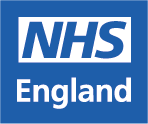National Patient Reported Outcome Measures (PROMs) Programme Consultation
Overview
Publications Gateway Reference: 04478
Patient Reported Outcome Measures (PROMs) measure health gain in patients, and have been collected nationally in England, since 2009. Patients are asked to complete questionnaires before and after their operations to assess the improvement in their health as they perceive it.
Four PROM data collections are currently specified in the NHS Outcomes Framework (3.1), the NHS Mandate and in the NHS standard contract. It is a requirement for organisations performing NHS funded hip replacement, knee replacement, varicose vein or groin hernia surgery to collect PROMs data and submit that data to the Health & Social Care Information Centre (HSCIC). The HSCIC then publish that PROMs data in quarterly and annual reports. (see www.hscic.gov.uk/proms)
Predominantly, the data is collected using paper questionnaires. The total cost to the NHS for the collection of the four nationally mandated PROMs is approximately £825K annually (annualised amount for 2014/15 as per spend Management Information from framework suppliers) – borne by provider trusts.
PROMs for many other conditions are collected locally across the NHS.
Some examples of the benefits of collecting PROM data can be found on the Health & Social Care Information Centre website.
Why your views matter
We are now consulting, publicly, on the future content of the national PROMs programme. We wish to consult regarding options around how to utilise our resources most effectively to understand the outcomes which matter to patients, to highlight areas with unwarranted variation in outcome and to consider indicators for service improvement.
We would like to understand more about how, when and why national PROMs data is used, and what benefits are provided to the NHS, both nationally and locally. We would like to understand how all interested parties view the national collection of PROMs data - including patients and the public, clinicians, trust boards, academics, patient groups, professional bodies, charities, Clinical Commissioning Groups (and other commissioners) and others.
Options for the future of the national PROMs programme include dis-continuing some clinical areas of the current collection, where the data is not being used to improve services; keeping some clinical areas of the current collection where benefits do exist; and/or introducing new PROM data collections in areas we need to know more about.
The Five Year Forward View is clear that we can do more by measuring what matters, requiring comprehensive transparency of performance data and ensuring that data increasingly informs payment mechanisms and commissioning decisions.
Under the restrictions of the current financial climate, discontinuation of any of the current PROM data may free up resources to collect patient-reported information on other, higher priority conditions, in line with NHS England priorities.
PROMS are currently official statistics; potentially soon to be national statistics. Therefore any changes to the existing collections require a defined process, alongside communication and liaison with the Department of Health, providers, CCGs, patient groups, clinical communities, the relevant professional bodies (e.g. British Orthopaedic Association, the National Joint Registry), and survey suppliers, who would need to be issued with reasonable notice.
NHS England is seeking views on the current national PROMs collections and the future for PROMs. We have set out specific questions which we are keen to get your views on and we have also left a section open for you to feedback comments or ideas more generally. You can respond to all of the questions, some of the questions, or just one if you would like.
The consultation is open to anyone who has an interest in this area.
You can respond online using the consultation survey or you can submit your response by email at: england.PROMS@nhs.net or by post at: PROMS Consultation, NHS England Insight Team, Quarry House 7E57, Quarry Hill, Leeds, LS2 7UE.
Please use the questions below as a prompt and if there are other points you wish to make please let us know
The consultation will run from Monday 4th January 2016 until Monday 28th March 2016.
If you are not using the online survey, a copy of the consultation questions can be downloaded.
Audiences
- GPs
- Nurses
- Health visitors
- Clinicians
- Managers
- Commissioners
- Directors of public health
- Pharmacists
- Doctors
- Midwives
- Health care assistants
- Healthcare scientists
- Paramedics
- Dentists
- Art therapists
- Drama therapists
- Music therapists
- Chiropodists/podiatrists
- Dietitians
- Occupation therapists
- Orthotists
- Orthopists
- Prosthesists
- Physiotherapists
- Diagnostic radiographers
- Therapeutic radiographers
- Speech and language therapists
- Childcare providers
- Allied health professionals
- Care-givers
- Ophthalmic practitioners
- Responsible officers
- Clinical psychologists
- Paediatric neuropsychologists
- GP Practices
- Clinical Nurse Specialist
- Practice managers
- Receptionists
- Dental surgeons
- Neonatal and maternity staff
- Foundation trusts
- Mental health trusts
- Community healthcare trusts
- Tribunal service
- Strategic clinical networks (SCNs)
- GP Practices
- Primary care
- Care Quality Commission
- Health Education England
- Health Protection Agency
- Local Government Association
- Monitor
- National Institute for Health and Care Excellence
- Health and Wellbeing boards
- Healthwatch (national and local)
- Health and Social Care Information Centre
- NHS Trust Development Authority
- NHS England Partnership Organisations
- National directors
- Regional directors
- Area Team directors
- All NHS England Staff
- All P&I staff
- Policy leads
- Voluntary groups
- Community groups
- Charities
- Advocacy or support organisations
- DH third sector strategic partners
- Regulatory bodies
- Academic/professional institutions
- Employer representatives
- Employee representatives
- Trade unions
- Deaneries
- Higher education institutions
- Royal Colleges
- Service providers
- All interested stakeholders
- Pharmaceutical Industry
- Local authorities
- Social care providers
- Patients
- Carers
- Service users
- Retailers
- Suppliers
- Information providers
- Information professionals
- Informatics professionals
Interests
- Patient and public voice
- Reducing health inequalities
- NHS Outcomes Framework
- System wide approach to quality

Share
Share on Twitter Share on Facebook